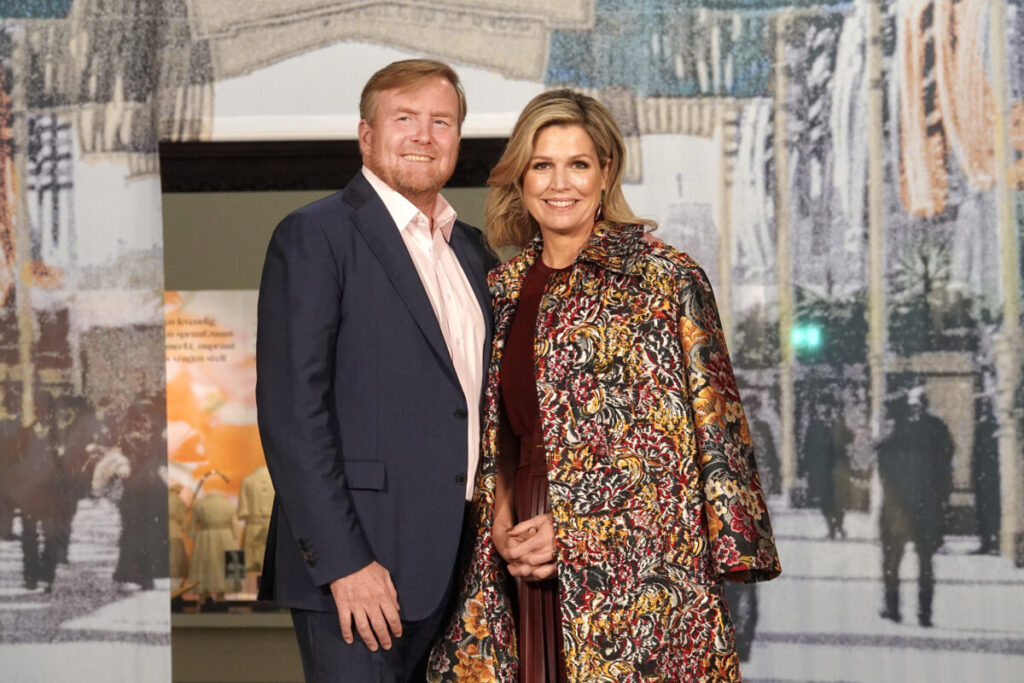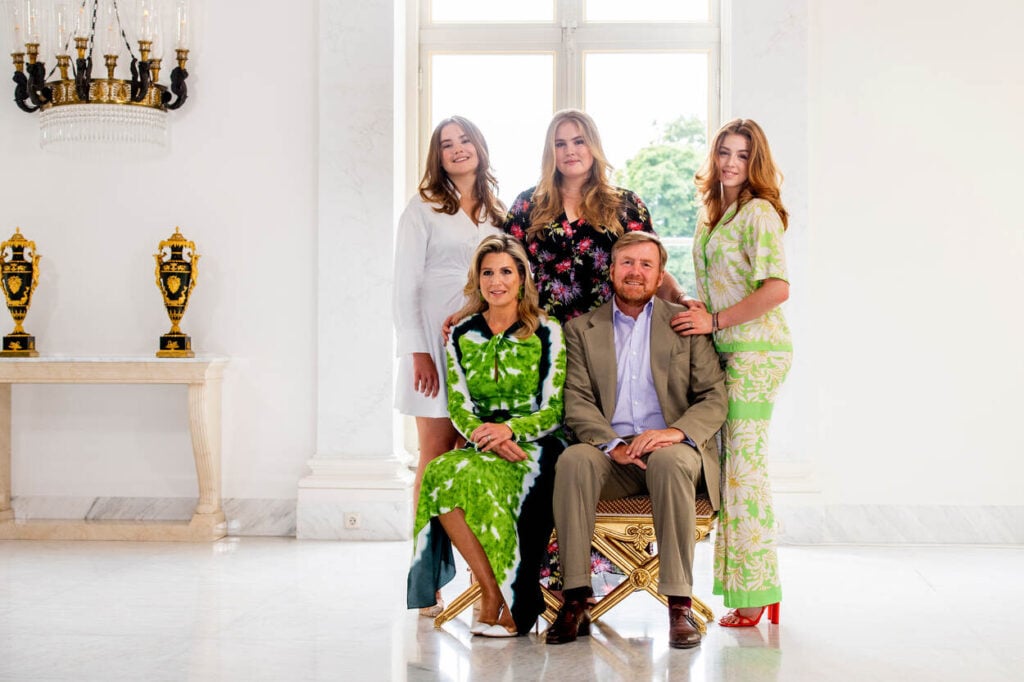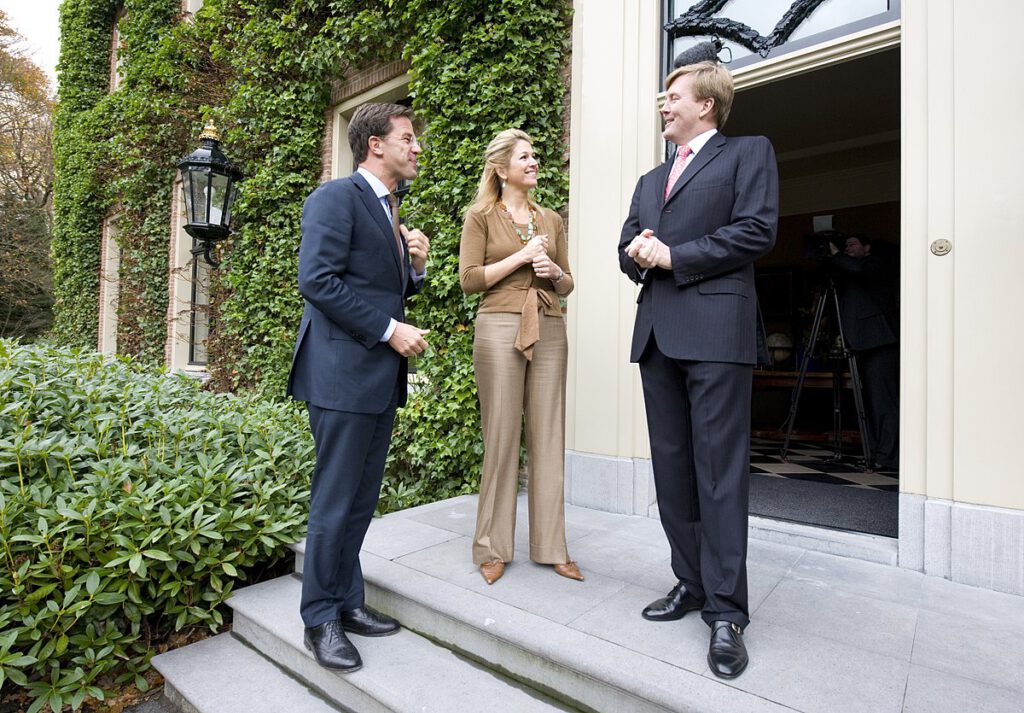Does the Dutch royal family pay taxes? What exactly is the financial status of the royal family in the Netherlands?
This is a good question, especially when keeping in mind that the Dutch are amongst the last remaining kingdoms in Europe. Sure, the chancellor of Germany or the French president do their taxes. (Hopefully.)
But how does it work with the royal family? Does Queen Máxima sit behind the computer every year around April to fill in her income tax returns? 🤔
Do the royals pay taxes in the Netherlands?
We’ll cut it short: no, the royal family of the Netherlands does not pay taxes.

Under the constitution, royal house members receiving a stipend are exempt from income tax over that stipend.
They are also exempt from all personal taxes over assets and possessions that they use or need in the execution of their functions for the kingdom.
On top of that, the monarch and the heir are also exempt from any tax that concerns inheritances received from members of the royal house. 👑
Phew, that’s a lot of tax exemption. Here’s a summary. 👇🏻
The Dutch royal family is exempt from taxes on:
- income
- inheritance
- donations
- a part of the capital money (used to carry out their functions for the Kingdom)
- cars and motorcycles with an AA license plate
The Dutch royal family is taxed on:
- private capital
- VAT on groceries
- dogs
Should the royals pay taxes in the Netherlands?
We think so. For one, the Dutch Royals are very expensive, according to research by the University of Ghent. As of 2023, the royal house of Oranje-Nassau cost Dutch taxpayers around €50 million per year, says The Guardian.
That makes them the most expensive royal family in Europe! Jesus, dial it down on those expenses, Willem-Alexander!
READ MORE | The Dutch and their monarchy; a two-sided coin
The King, the Queen and the oldest Princess also get constitutional benefits that increase annually at the same rate as the salaries of governmental officials. And they get compensation for paying their staff too!
We’re sure there is plenty left to pay for taxes that benefit everyone. 😊

When asked — Do you agree with the statement: “the king, queen and princess Beatrix should pay taxes over their income and wealth, like all Dutch?” — 65% of Dutchies said ja in this 2019 survey by Statistica.
Why don’t the royals pay taxes in the Netherlands?
There are rumours that since the establishment of a new financial system managing the Royals’ expenses in the early 70s, a deal was made with the Dutch cabinet to guarantee that the ‘losses’ of replacing the old system would be compensated.
If this is true, this agreement would still be ongoing.
A couple of years ago, a report detailing this theory stirred up quite some controversy. There was even a committee put in place to clarify the matter. However, in the end, a conclusion was reached that no such deal was ever made. 🤷♀️
Is this the end of it?
Of course not. Instead, this has sparked a new discussion about whether the Royals should pay taxes like everyone else.
However, at the beginning of 2024, a majority of the Dutch Cabinet officially voted in favour of making the king pay taxes for the first time. What does that mean? Well, that his days as a tax-free royal may be numbered.
Now that there is a majority to amend the constitution, it’s up to outgoing Prime Minister Mark Rutte to see it carried out.
But what is the opinion of Prime Minister Rutte, you ask? Something along the lines of “everything should stay as it is, ’cause changing the rules would be too complicated”.

Do you think the royals should pay taxes? Let us know in the comments!




doesnt really make sense to tax someone who is paid using tax money
well, in theory this could be said as well for the government employees then
Would you include the police the armed forces customs, well just about every government agency in that statement?
two premises to start with (you may or may not agree with these):
1 Being a monarchy is all about how the world perceives us. Having a king (or queen) is often associated with the stereotype portrayed in fairy tales and stories. In a way it’s just global marketing.
2 Since the king got forced into this position (by being born in that family) he had no choice in his life what so ever. He has to maintain the image.
You could say that since the Netherlands is benefiting from having a king and he is forced to act “kingy” and do “king things”. It’s therefore justified not to pay tax. I wouldn’t want to be king. Being known and watched by the whole world, forced to live an image, not for me. I am not particularly pro royal family, but to be against them is another thing.
In the end taxing him won’t make much of a difference since it’s all state money anyway. To be a monarchy is politically and economically beneficial for The Netherlands. So the question whether he should or should not be taxed is probably irrelevant and is only kept alive for political reasons only. Don’t get me wrong, I am not saying you have political means with asking this question, but I do think that whenever this issue becomes a hot topic on big media outlets again, it’s just to create a hype. People start arguing about this and no one really asks relevant questions. This will give politicians more freedom to act out their agendas instead of the voter’s agenda.
Relevant questions are those which help us and those around us to develop more, faster and better. So for example, “How can we promote the bicycling culture abroad?” This will not only make them do healthy exercise on a daily basis, it’ll also create a new market for us to export bicycles to. This will make our and their economy grow. Of course this is just one of many examples and happens to be an economical one. The reason we are a monarchy is political and economical. If it was more profitable to not be a monarch we wouldn’t be one.
one last thing, by no means am I implying being a monarch is better than not being one. I mean the best about Europe (and the world) is the diversity in peoples and how they manage themselves.
People are stupid and people are greedy. And that is why this whole not paying tax thing is still happening,